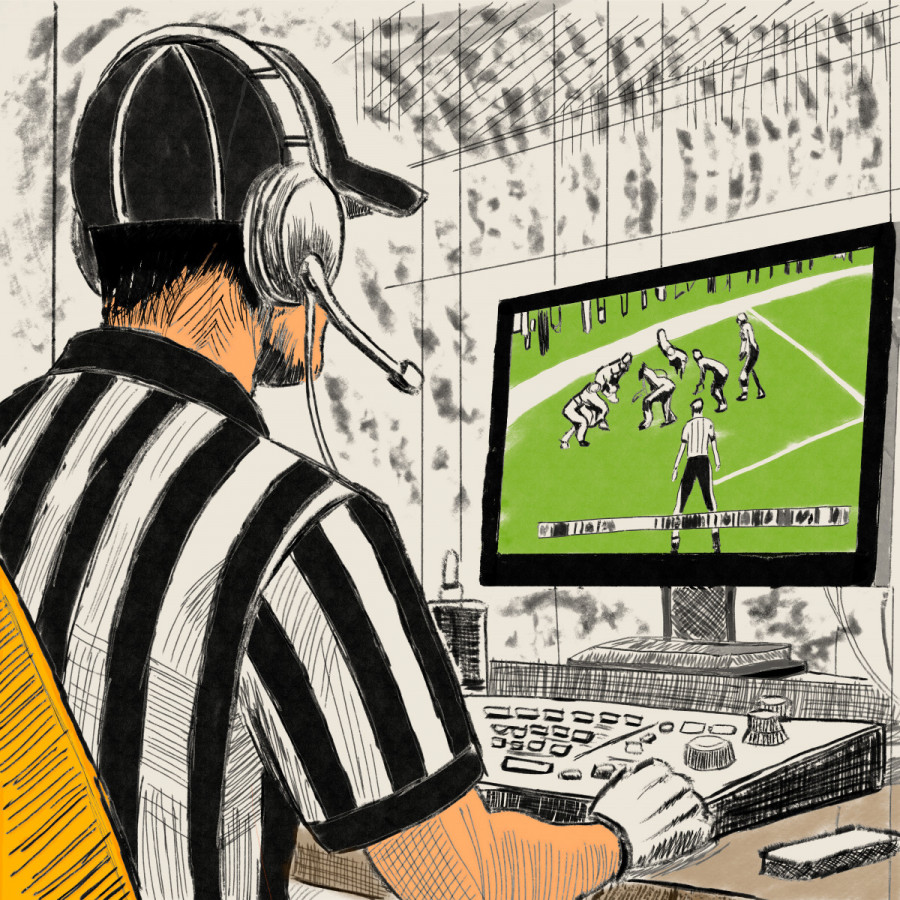The case for video reviews: Fair play over human error
How video replays ensure justice and fairness in high-stakes sports
While video reviews aren’t needed for every single play in sports, they remain an extremely useful tool.
What if the referee is biased and makes a wrong call? What if a player elbowed another one on purpose on the way down? Unless you’re in the ensuing brawl, how would you know? Sports aren’t outside the realm of capitalism and corruption.
That is where the video review comes in. There are too many variables in sports to rely solely on the human eye, especially when many are watching from halfway across the world. If the people in the stadium who are close enough to smell the players’ sweat can’t call it, what makes you think your naked eye through a screen can?
The people who argue that video reviews should be banned are arrogant, because they base it on thinking that mistakes that aren’t easily seen do not count, even more so when it benefits their team. Some naysayers even make claims about a ball out of bounds when they’ve never stood on a field themselves. As someone who has played team sports, I know there’s a need for impartial input. A video won’t get ruled by human emotion and declare a foul on a screaming player.
There have been several instances where incorrect calls have decided the outcome of a sports game. For example, in the 2006 Super Bowl XL where the Pittsburgh Steelers went against the Seattle Seahawks and won 21-10, there were so many bad calls that Bill Leavy, the official, had to issue a public apology. Even die-hard Steelers fans agreed it didn’t feel like a fair win. Referees are human, and mistakes are inevitable—however, those errors inevitably favour one team over the other, which is unfair. Sports should aim for as much fairness as possible, without any unnecessary advantages or disadvantages.
In American football, video replay officials automatically review scoring plays and turnovers. While some may argue that this disrupts the game’s flow, they need to remember that this isn’t a friendly game of backyard football. This is a professional setting in which the players are doing their job, therefore, maintaining rules is important.
During its first trial in 1976, video replay was able to catch “a missed call on a play involving O.J. Simpson that could have been corrected with replay review.” While much improvement had yet to be made before it was implemented, it still proved useful in its first run. Video review is the most important thing in sports after the players, as it allows coaches to create better strategies by pinpointing issues and gives viewers a deeper insight into the game.
If you find reviews boring, I would argue that you don’t actually care about the players, or the game itself. If you are really passionate about something, why would you want to ban a key feature of it? The sports industry is worth a lot of money—while you might not be betting on game outcomes, millions of people are. The decision to bet is theirs, but we can’t deny that there is a market that relies on these replays, and the impartiality they help achieve.
Humans aren’t impartial. We can often be biased, which is easily proven in the realm of sports by how many tend to complain about a referee’s call against their preferred team, even when the call is right. Sports tap into our emotions, and it is easy to get wrapped in a sense of certainty that your team deserves to win more than another.
While these replays can be annoying and repetitive, we should all agree that our team should win fairly rather than by cheating. And if you don’t care whether your team cheats, then it isn’t the video review that’s useless; it’s your sportsmanship.


_600_832_s.png)

_(1)_600_375_90_s_c1.jpg)


